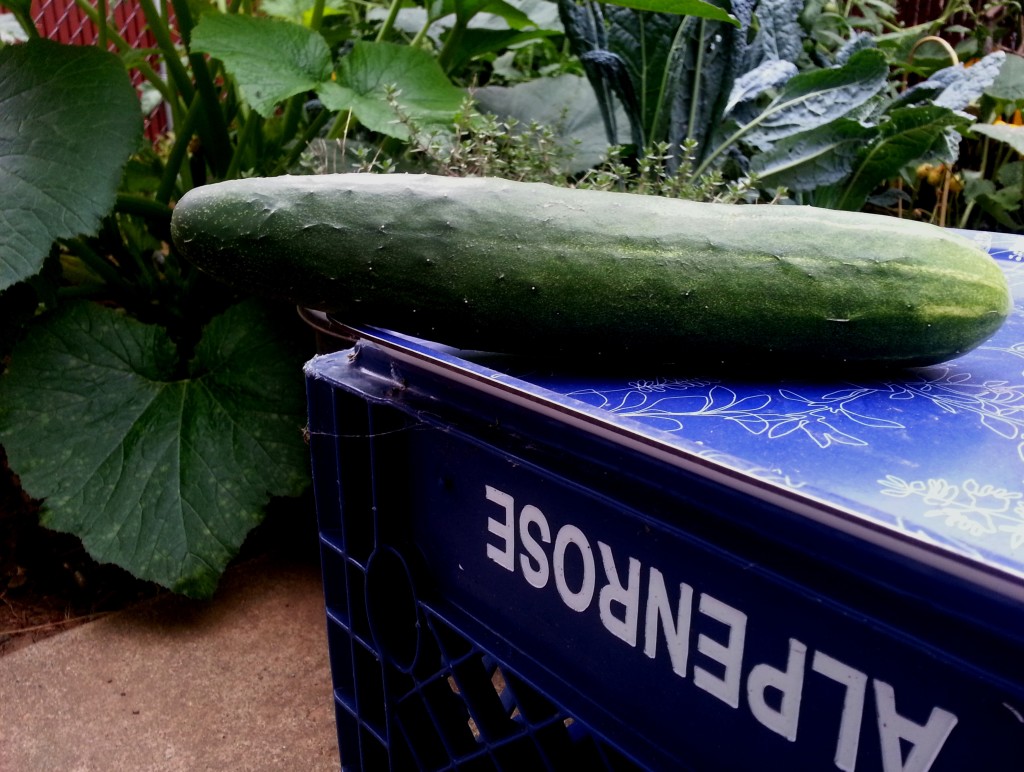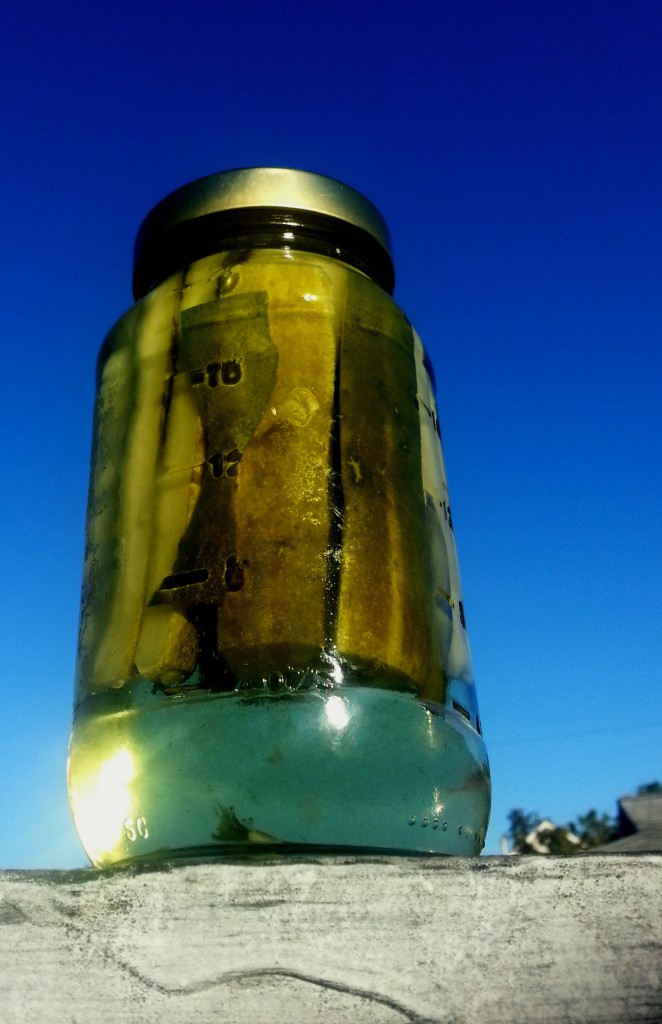What is it and what do I do with it?
 Cucumber is a member of the Cucurbita family along with melons, gourds, and squashes. There are a wide variety of cucumbers out there, but a question that has come up at recent pick ups is the difference between “regular” cucumbers and pickling cucumbers. There are a host of ideas out there about the differences, but as I can best surmise there a four key differences that are important for pickling:
Cucumber is a member of the Cucurbita family along with melons, gourds, and squashes. There are a wide variety of cucumbers out there, but a question that has come up at recent pick ups is the difference between “regular” cucumbers and pickling cucumbers. There are a host of ideas out there about the differences, but as I can best surmise there a four key differences that are important for pickling:
- Less moisture
- Skin is milder in flavor, less bitter
- Seeds are smaller and fewer
- Smaller in size
Electrolytes, antioxidants, and have 13% of  the RDA for Vitamin K. There is no shortage of options for what to do with these items including fresh in salads, cold soups, juicing, pickling, and infusions whether it be in water or vodka. My friend Gloria is an alcohol infusion mixologist and while here is Portland I had the honor of straining and sampling some cucumber, which takes just three days. I also tried cherry and tea infusions as well. Sublime.
the RDA for Vitamin K. There is no shortage of options for what to do with these items including fresh in salads, cold soups, juicing, pickling, and infusions whether it be in water or vodka. My friend Gloria is an alcohol infusion mixologist and while here is Portland I had the honor of straining and sampling some cucumber, which takes just three days. I also tried cherry and tea infusions as well. Sublime.
Storage
This gets tricky. I will be creating a separate post updating new information about storage after I found some interesting information from a UC Davis study. They suggest cucumber be stored on the counter. If refrigerated, it should only be for a few days.Here is the link to the blog page More Respect for the Yield
Preparation
There is not much to offer here as they are so commonly used. The main point is to eat the skins if the bitterness is tolerable as with so many fruits and vegetables there is a lot of nutritional value and flavor.
Recipes
[catlist name=”Recipes” tags=”cucumbers” orderby=title order=date numberposts=-1]

One thought to “Cucumber”
A CSA member had asked about pickling this past week. I recently made pickles from the recipe below and am passing it on for anyone wondering how to preserve some of the bounty. You can use pickles or cucumbers.
http://www.thekitchn.com/how-to-make-dill-pickles-cooking-lessons-from-the-kitchn-193350
Comments are closed.